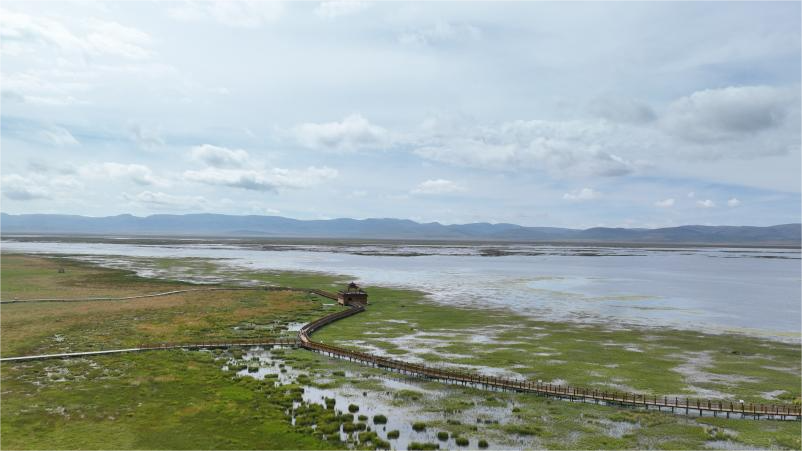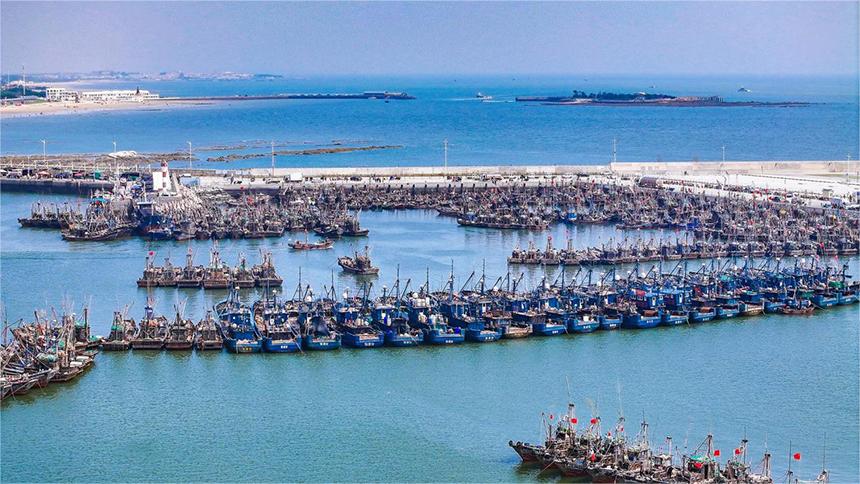Rapeseed fields fuel tourism surge in Menyuan, NW China's Qinghai
Menyuan Hui Autonomous County in Haibei Tibetan Autonomous Prefecture, northwest China's Qinghai Province, is in full bloom. The county's vast rapeseed fields are drawing crowds of tourists to witness the spectacular golden landscape.
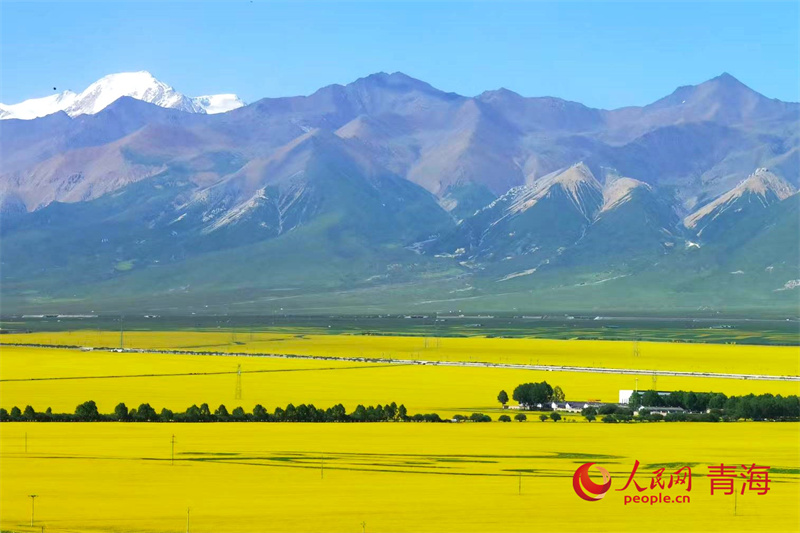
Rapeseed fields blanket Menyuan Hui Autonomous County, Haibei Tibetan Autonomous Prefecture, northwest China's Qinghai Province. (People's Daily Online/Zhang Liping)
In July 2024, Menyuan celebrated its 25th Rapeseed Flower Culture and Tourism Festival.
Over 25 years, Menyuan has enhanced its rapeseed flower landscapes, earning titles like "One of the Top 10 Flower Seas in the World" and "China's Most Beautiful Rapeseed Flower Sea."
These accolades have brought recognition and economic opportunities to Menyuan's residents.
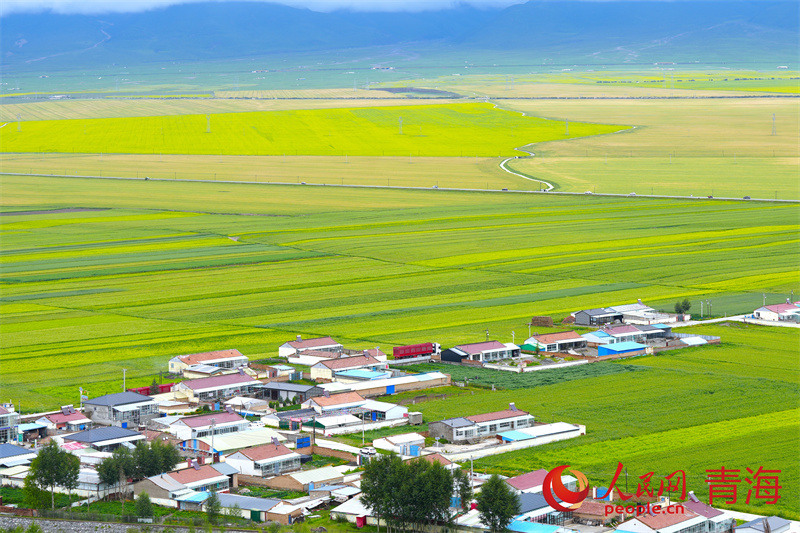
Expansive rapeseed flower fields stretch across Menyuan Hui Autonomous County, Haibei Tibetan Autonomous Prefecture, northwest China's Qinghai Province. (People's Daily Online/Yang Qihong)
The county has seen significant tourism growth.
Since 2014, hotels have increased 3.8-fold to 65, and agritourism facilities have grown nearly 12-fold to 95. The tourism workforce has expanded to 3,600 employees, a 3.27-fold increase.
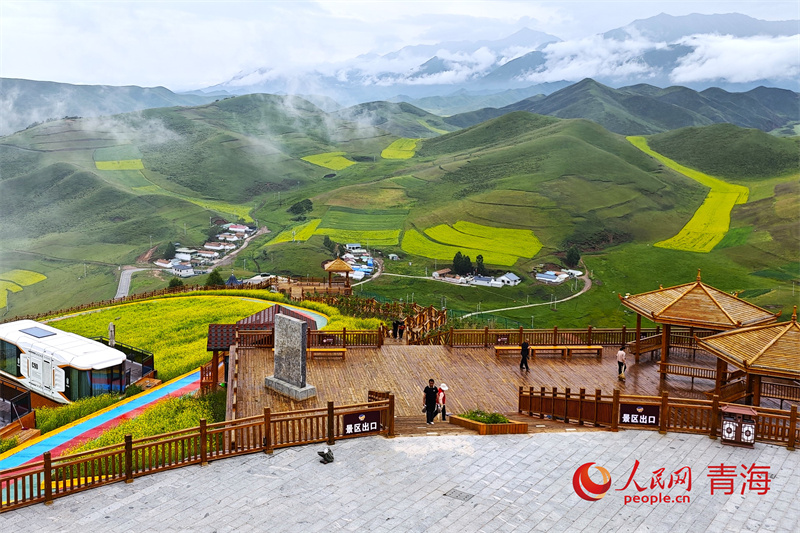
Zhaobi Mountain rises above Menyuan Hui Autonomous County, Haibei Tibetan Autonomous Prefecture, northwest China's Qinghai Province. (People's Daily Online/Gan Haiqiong)
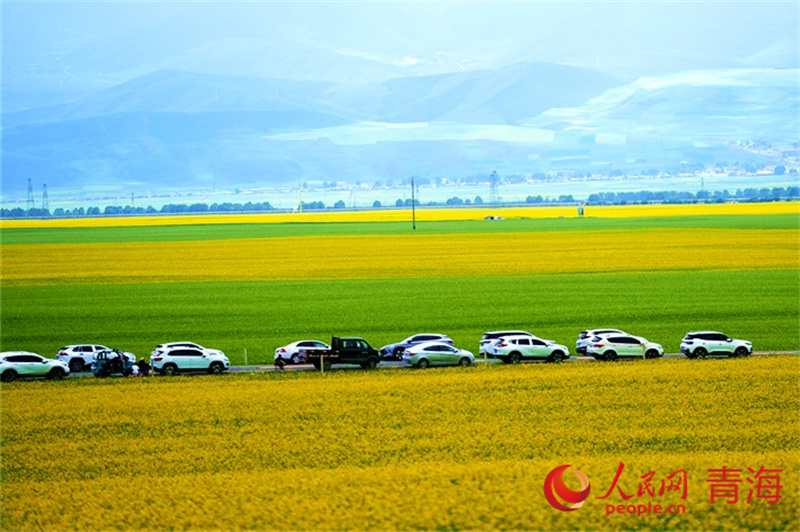
Vehicles navigate through a sea of rapeseed flowers in Menyuan Hui Autonomous County, Haibei Tibetan Autonomous Prefecture, northwest China's Qinghai Province. (People's Daily Online/Gu Feifei)
Menyuan's villages earned over 38 million yuan ($5.3 million) in 2023, mainly from rapeseed tourism. The "flower economy" has been instrumental in the region's rural revitalization, with rapeseed flowers becoming a lucrative source of income for the local community.
The region has cultivated rapeseed for 1,800 years, becoming a model for high-yield production in northern China.
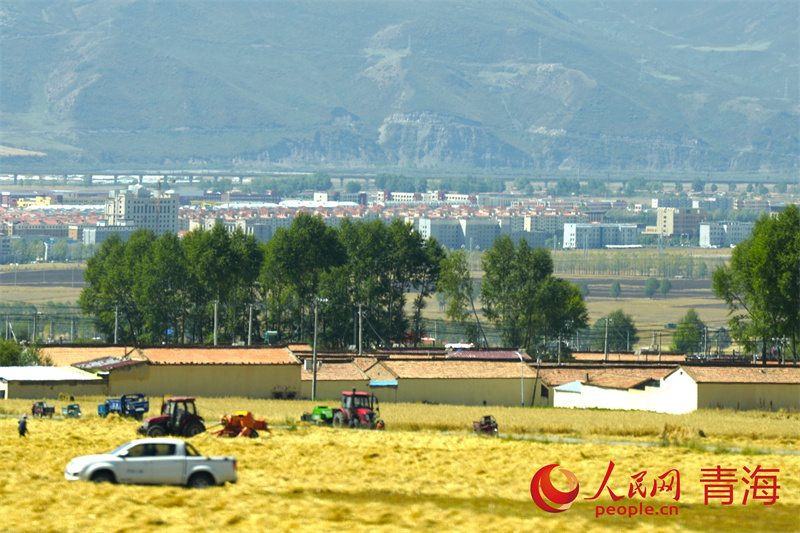
Rapeseed and highland barley ripen for harvest in September in Menyuan Hui Autonomous County, Haibei Tibetan Autonomous Prefecture, northwest China's Qinghai Province. (People's Daily Online/Gan Haiqiong)
The county's rapeseed planting area has stayed above 250,000 mu (16,675 hectares) in recent years, according to Ma Wenkui of the local agriculture bureau.
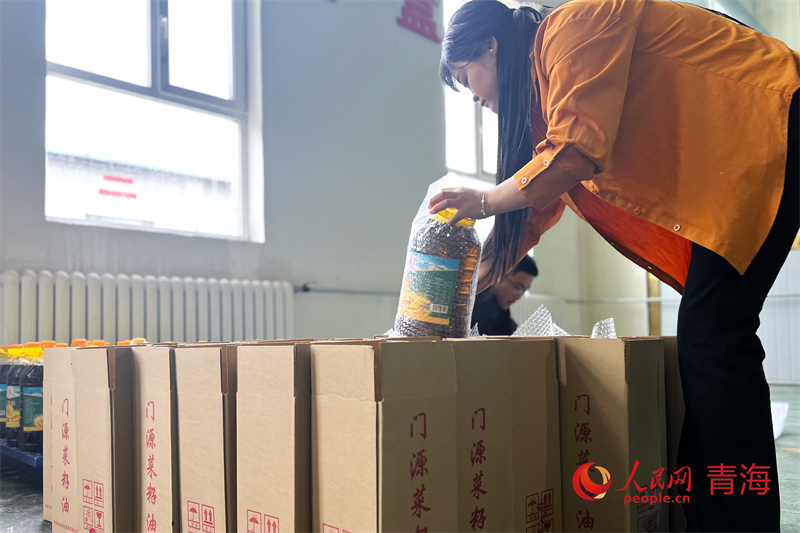
Workers package rapeseed oil products at Qinghai Shengtaiyuan Logistics Service Co., Ltd. in Menyuan Hui Autonomous County, Haibei Tibetan Autonomous Prefecture, northwest China's Qinghai Province. (People's Daily Online/Gan Haiqiong)
This abundant production has spurred local businesses to seek new markets.
Xing Yonghong, head of Qinghai Shengtaiyuan Logistics Service Co.'s general office, said the company recently expanded distribution to Lanzhou, capital of neighboring Gansu Province.
"We've made our grain and oil products available in major supermarkets there," Xing said.
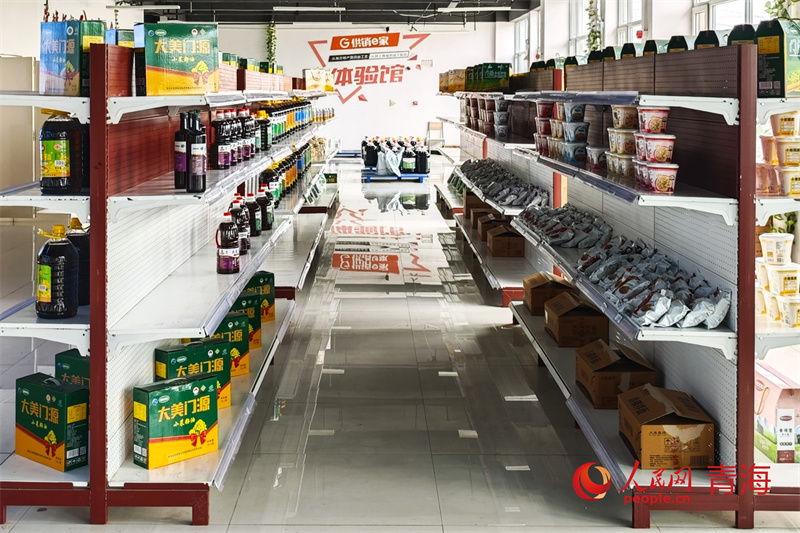
Grain and oil products from Qinghai Shengtaiyuan Logistics Service Co., Ltd., located in Menyuan Hui Autonomous County, Haibei Tibetan Autonomous Prefecture, northwest China's Qinghai Province. (Photo/Zhang Hongyi)

Cyclists pedal through golden rapeseed fields during the Tour of Qinghai Lake race in northwest China's Qinghai Province. (People's Daily Online/Gu Feifei)
Photos
Related Stories
- Heidushan: Nature's ink canvas
- Immerse yourself in autumn's beauty
- One year on, law on Qinghai-Xizang Plateau ecosystem protection bears fruit
- Dedication of plateau patrollers moves filmmakers
- Yak racing festival celebrated in Qinghai
- Thriving mountaineering unlocks economic potential of China's remote area
Copyright © 2024 People's Daily Online. All Rights Reserved.






